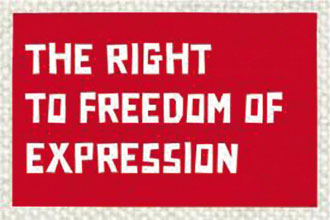
|
 |
 |
|
|
|
|
|
|
|
|
|
|
|
|
|
|
|
|
|
|
|
|
|
|
Freedom of Expression Comes FirstSeveral months have passed since the ban on the publications of some political societies by the Information Affairs Authority (IAA) in September 2010. The IAA is still insisting that all its procedures were in accordance with the regulations of 2002 Press, Printing and Publication Law.
This raises an important question about why implementing a law, which is an out of date and needs amendments? It is surprising that the authorities were ignoring all breaches to the 2002 Law for years, but suddenly decided to implement it. What benefit could be gained from implementing this Law, while breaching some of its articles harms no one? What is even more interesting is that the margin of freedom enjoyed by local newspapers has resulted in publishing critical and popular material than those published by political societies, which are small in number, limited in circulation and have a minor effect. Moreover, these political societies have not been harmed or gravely affected by the ban. On the contrary, their communication with their supporters remained unhindered as well as their ability to express their views. This is due to the fact that the daily newspapers cover all their activities in greater detail than their own newsletters. In fact, the Government is the only party to be negatively affected by taking this decision. Both its reputation in the international human rights organizations reports and its human rights record have been affected by the ban. The banning of publications and the censoring of internet websites will remain a controversial issue, and the harsh criticism of the Government will continue. It is surprising that the Government cannot tolerate the societies’ criticism in their newsletters, whilst at the same time it can tolerate wider and deeper criticism by the same societies in the daily newspapers. It was hoped that the Press law would be quickly amended, but unfortunately this did not take place, and it is still unknown when the new Parliament will discuss an alternative bill to solve the root of the problem. Is it necessary for the ban to continue just because the political societies used new technical applications that were not covered by the current legislation? Banning of newspapers would be understood if it took place in a dictatorship. It is unusual for the Bahraini Government to ban a few newsletters, whilst local newspapers enjoy a wide margin of freedom. The banned newsletters were known to be published periodically and monthly from 2002 to 2010. All statutes of political societies state that they have the right to issue a periodic newsletter, which reflects their position and promotes their activities and ideas. Hence, these societies filed a lawsuit against the IAA’s decision in the Administrative High Court. In summary, we would like to emphasise that the IAA’s persistence on implementing the 2002 Law will fail to achieve its objective, and will harm the Government’s reputation both locally and internationally. The only people who will benefit from the ban are those who will use it as evidence for the deterioration of freedoms inside Bahrain, which are guaranteed by both the Constitution and the National Action Charter. The rule of law should be respected and the solution is not to impose the current Law but to amend it, because the freedom of expression in Bahrain is more readily available than what the Law allows. Breaching or ignoring the current Press Law does not necessary mean disrespect. It is an indication that the current Law has lost its viability. |
